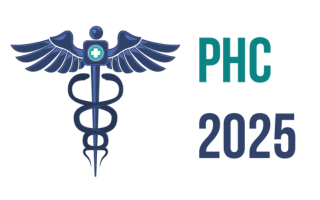PHC 2025

University of Washington, USA
Biography:
Dr. Nuttada Panpradist (www.nuttadapanpradist.com) is honored as the recipient of the prestigious 2024 Rice 360° Innovation and Impact in Global Health Award, recognizing her commitment to advancing equitable and high-quality healthcare through innovative solutions in global health. With Ph.D. at the University of Washington (UW) bioengineering, her research in the Lutz laboratory focuses on pioneering molecular chemistries and workflows for diagnostics in resource-limited settings. Notable projects in Dr. Panpradist's portfolio underscore her translational contributions, including the development of diagnostics for HIV drug resistance, TB infection, adherence to TB treatment, and COVID-19, with the latter licensed for commercialization. In an effort to foster the intersection of bioengineering and global health, Dr. Panpradist transitioned to a post-doctoral appointment at the UW School of Public Health, becoming the first bioengineer at the Global Center for Health of Women, Adolescents, and Children. Currently, she serves as the Principal Investigator on collaborative projects across various UW departments and holds honorary positions at international institutions in Kenya and Thailand. Envisioning her future lab as a hub for innovative, inclusive, and sustainable point-of-care molecular diagnostics, Dr. Panpradist integrates impactful research with transformative teaching for global outreach, prioritizing sustainability in diagnostic technologies for global health equity. Beyond her research, Dr. Panpradist is a serial award-winning mentor, having guided nearly 30 students from diverse backgrounds. She is deeply committed to diversity, equity, and inclusion (DEI) initiatives, co-developing the White House-funded NorthStar Peer Navigation Program and actively participating in DEI committees during her Ph.D. tenure. Her mentorship extends to high school students through programs like Making Connections, introducing them to educational and career opportunities. Dr. Panpradist's commitment to DEI extends globally, where she promotes inclusive and ethical biomedical research. Her upcoming role on the Academic Editorial Board of the PLOS Global Public Health journal reflects her dedication to advancing decolonization and diversity in academia.
